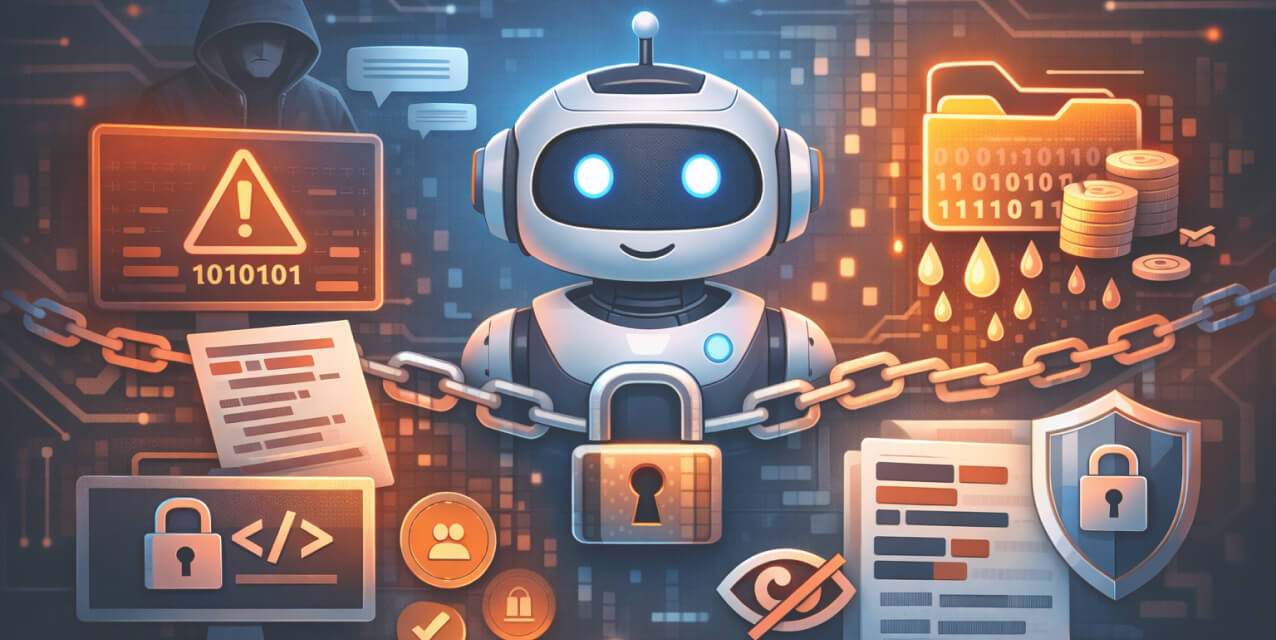Beyond Chatbots: Why AI Agents Are the Next Frontier in Customer Experience
AI agents are redefining customer experience by moving beyond scripted responses to deliver intelligent, autonomous, and personalized service at scale.

DATE
CATEGORY
HASHTAGS
READING TIME
Chatbots have long been the poster children of AI-driven customer service. But in today’s fast-evolving digital economy, their limitations are becoming increasingly clear. Enter AI agents—a new breed of intelligent, autonomous systems capable of handling complex tasks, adapting to dynamic customer needs, and integrating seamlessly across touchpoints. These agents aren't just tools; they represent a paradigm shift in how businesses interact with and support their customers. In this post, we explore why AI agents are not only the future of customer experience but a transformative force that businesses can’t afford to ignore.
Introduction: The Evolution of Digital Customer Service
For over a decade, chatbots have played a pivotal role in digital customer service. They’ve provided 24/7 support, reduced human workloads, and enhanced operational efficiency. But let’s face it—most chatbots are glorified decision trees. They respond to keyword triggers, struggle with nuance, and often frustrate customers more than they help.
In contrast, AI agents represent a significant leap forward. They don’t just answer questions—they solve problems. They’re capable of proactive engagement, contextual understanding, and decision-making, all at scale. This post delves into what makes AI agents different, why they matter, and how forward-thinking businesses are already leveraging them to revolutionize customer experience.
From Chatbots to AI Agents: Understanding the Shift
What Are Chatbots?
Chatbots are rule-based systems designed to mimic human conversation. Typically, they follow a scripted flow and rely on predefined inputs. While useful for handling simple FAQs or guiding users through standard procedures, they fall short when customer queries veer off script.
What Are AI Agents?
AI agents are autonomous software entities powered by advanced machine learning models, such as large language models (LLMs). Unlike chatbots, they learn from context, adapt over time, and act independently to achieve specific goals. These agents can access databases, trigger workflows, personalize interactions, and even escalate cases intelligently.
Key Differentiators:
- Adaptability: AI agents can modify their behavior based on user behavior and new information.
- Autonomy: They can complete tasks without constant human oversight.
- Context Awareness: AI agents understand customer history, sentiment, and intent in real-time.
- Multimodal Integration: Many AI agents now interact through voice, text, and even visual inputs.
Why Traditional Chatbots Fall Short
While chatbot technology has improved, limitations remain:
- Poor User Experience: Frustration arises when bots don’t understand queries or redirect to human agents too quickly.
- Siloed Systems: Many chatbots can’t access backend systems to resolve issues effectively.
- Lack of Personalization: Without deep user data integration, chatbots deliver generic responses.
In a landscape where customer expectations are higher than ever, these constraints are unacceptable. Customers demand immediacy, personalization, and relevance—and they don’t care whether the response comes from a bot or a human, as long as it solves their problem.
The Rise of AI Agents in Customer Experience
AI agents are uniquely positioned to meet modern customer demands. Let’s look at how they’re redefining customer interactions:
1. End-to-End Problem Solvers
Rather than stopping at answering a question, AI agents can complete entire workflows—from troubleshooting technical issues to processing refunds or rescheduling appointments.
2. Proactive Engagement
Instead of waiting for a customer to report a problem, AI agents can monitor user behavior and reach out preemptively. For instance, if an AI agent notices frequent failed login attempts, it might proactively offer help or initiate a password reset.
3. Omnichannel Presence
AI agents can operate across multiple channels—email, chat, SMS, voice, and social media—while maintaining context. This ensures that customers don’t have to repeat themselves when switching platforms.
4. Hyper-Personalization
Through deep integrations with CRMs and data platforms, AI agents can tailor interactions based on user behavior, purchase history, and preferences. This level of personalization leads to higher satisfaction and increased loyalty.
Real-World Applications and Case Studies
E-commerce:
Retailers are using AI agents to provide personalized shopping recommendations, process returns, and track orders—all without human intervention. Amazon’s AI-powered assistant is a prime example of this in action.
Banking & Finance:
AI agents in fintech can handle loan applications, perform fraud detection, and provide financial advice in a personalized manner. Banks like Capital One have deployed intelligent agents to streamline customer interactions.
Healthcare:
AI agents are helping with appointment scheduling, patient onboarding, and post-care follow-ups. They can also answer complex questions about medications or treatment plans using up-to-date medical databases.
Travel & Hospitality:
From booking to post-trip support, AI agents ensure seamless experiences. For instance, if a flight is delayed, an AI agent can proactively rebook and notify the customer—no waiting on hold required.
Challenges and Considerations
Despite their advantages, AI agents are not without challenges:
- Data Privacy: Ensuring that AI agents comply with GDPR and other privacy regulations is critical.
- Bias and Fairness: AI models can inherit biases from training data, potentially leading to unfair outcomes.
- Human Oversight: While agents are autonomous, oversight mechanisms must be in place for escalation and accountability.
- Integration Complexity: Implementing AI agents involves significant backend integration and change management.
Businesses must address these issues head-on to fully realize the benefits of AI agents.
Designing for Success: How to Implement AI Agents Effectively
Here's 4 simple steps:
- Start Small, Scale Smart: Begin with a pilot program in a high-impact area and expand based on measurable ROI.
- Focus on Training and Fine-Tuning: Customize the AI agent using company-specific data to enhance relevance and accuracy.
- Ensure Seamless Escalation: Build a bridge between AI agents and human agents to handle edge cases gracefully.
- Measure Continuously: Use metrics like resolution time, NPS, and CSAT to optimize agent performance.
The Future Outlook: Autonomous Experience Platforms
The shift toward AI agents is a stepping stone toward broader Autonomous Experience Platforms (AXPs)—systems that blend AI, data, and automation to orchestrate seamless, intelligent customer journeys across the entire lifecycle.
As these platforms mature, we’ll see a future where:
- AI agents collaborate across departments (sales, support, product) to drive holistic outcomes.
- Predictive analytics guide real-time decision-making.
- Customer experience becomes a strategic differentiator, not just a support function.
Conclusion: The Time to Evolve is Now
The transition from chatbots to AI agents marks more than a technological upgrade—it represents a philosophical shift in how businesses view customer experience. AI agents offer a scalable, intelligent, and personalized approach to customer engagement that today’s consumers not only appreciate but increasingly expect.
Those who invest now will not only gain a competitive edge—they’ll redefine what great service looks like in the age of intelligent automation.



